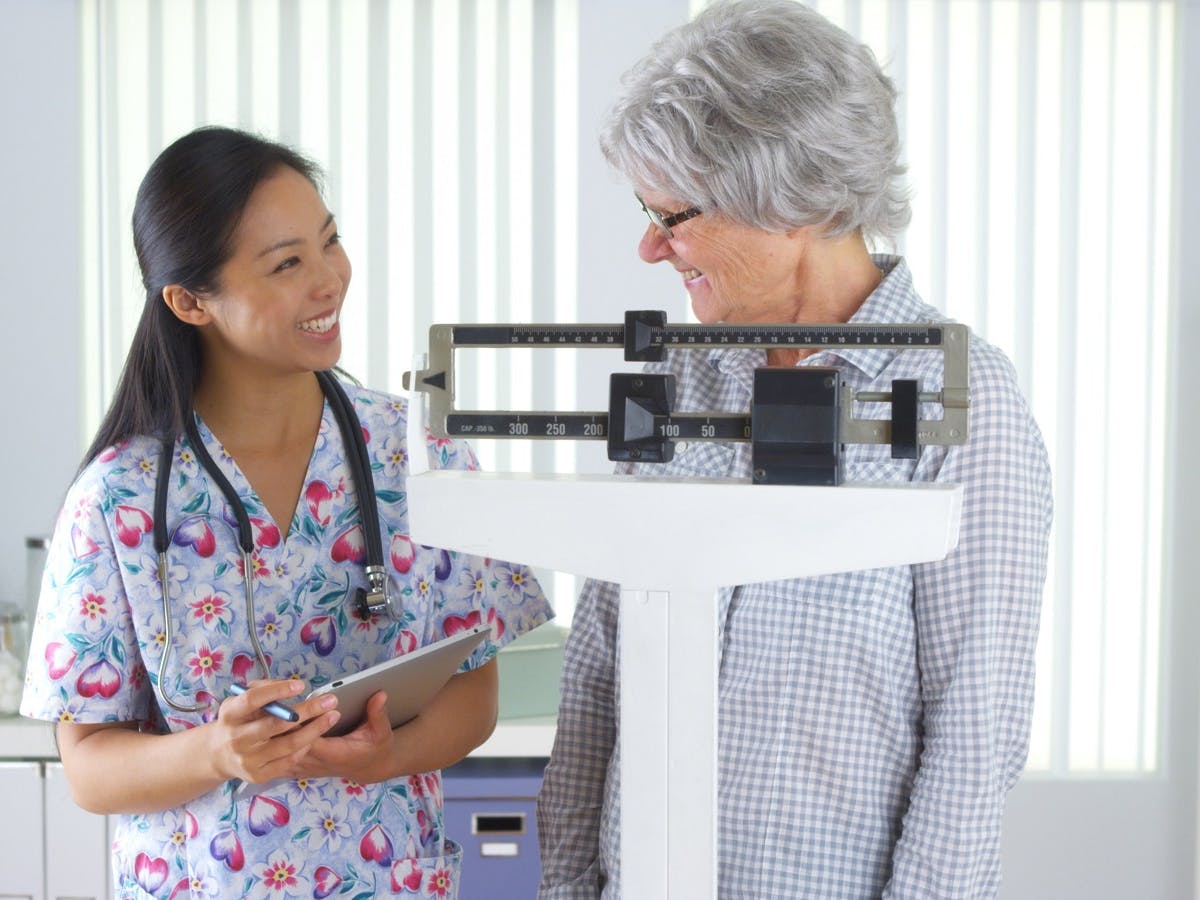
As people get older, fat mass tends to increase and muscle mass tends to decline in the body, which often causes weight gain.
It can be tough to see the numbers on the scale go up, especially if you haven’t been eating more or exercising less. Sometimes the reason for weight gain is nothing more than the many changes going on in our bodies as the years go by.
“Our bodies simply don’t respond the way they used to when it comes to changes in diet and exercise,” Jillian Reece, a dietician at Tufts Medical Center, told the university’s news site. “The ability to exercise hard, recover quickly, and the desire to do so, decreases in many people as they get older.”
Why we gain weight as we age
There are a few different reasons for age-related weight gain.
Changes in muscle mass
Many people experience muscle loss, or sarcopenia, as they age. There are a few reasons for this: Lean muscle, which burns more calories than fat, tends to decline as we age. People also tend to be less active as they get older. And the diet of older adults is sometimes not nutritious enough to retain the muscle they had in their younger years.
Over age 60? Learn how to start lifting weights.
Hormone changes
Both men and women experience hormonal changes later in life. For men, testosterone levels gradually decrease with age. These changes often naturally contribute to weight gain.
Women experience a reduced production of estrogen and progesterone as they go through menopause. These hormonal shifts can also contribute to a woman’s changing weight and body composition.
A slower metabolism
Metabolism refers to the body’s ability to turn food into energy. A study published in August 2021 found that people’s metabolism does indeed slow down as they age, but much later than originally thought — around the age of 60.
Can you do anything about it?
It does indeed seem like age-related weight gain for many people is just a fact of life. Fortunately, you can take steps to maintain your weight as you get older. (In fact, these steps are great for your health, whether you find yourself gaining weight or not!
Exercise, with weights
It’s important to maintain a regular exercise regimen as you get older. And if you don’t already lift weights and have a strength training routine, you should absolutely add one. Older adults who regularly lift weights are able to better maintain their muscle mass and mobility than those who don’t.
Eat healthy
A colorful diet that is high in protein and fiber, and low in saturated fats and sugars can help you stay at a healthy weight. Choose a variety of fruits, vegetables, lean meats, fish, and whole grains. Keep the fast and processed foods to a minimum, and try to avoid alcohol and sugary drinks in excess.
Are weight loss plans covered by Medicare?
Prioritize sleep
Regularly getting a good night’s rest is imperative to good physical health. Inadequate sleep not only can cause a lack of motivation to exercise, but it also can increase your levels of ghrelin, which is the hormone that regulates your appetite.. (It’s also called the hunger hormone.) When your ghrelin levels are high, you have a bigger appetite and might eat more impulsively because of it.
Of course, it’s far more important to live a healthy lifestyle than obsess over the numbers on the scale. If you’re experiencing age-related weight gain, don’t beat yourself up about it. Make changes if necessary that allow you to focus on your overall health — eating well, exercising, and treating your body with the care it needs and deserves!
Additional Resources
Free Online Exercises for Older Adults
Internal Website Link
Healthy Knees Could Be Just a Walk Away
Internal Website Link
You Might Not Be As Old As You Think You Are
Internal Website Link
Get Out of Your Food Rut!
Internal Website Link



